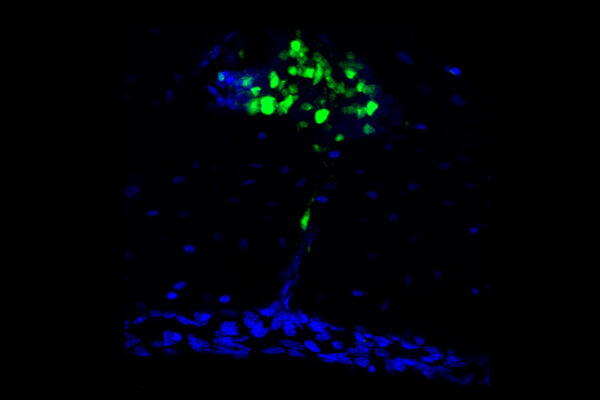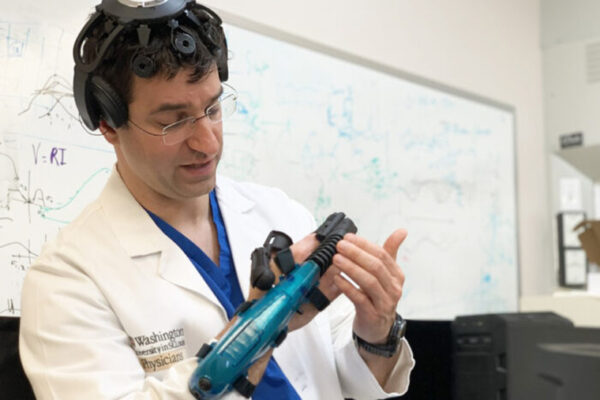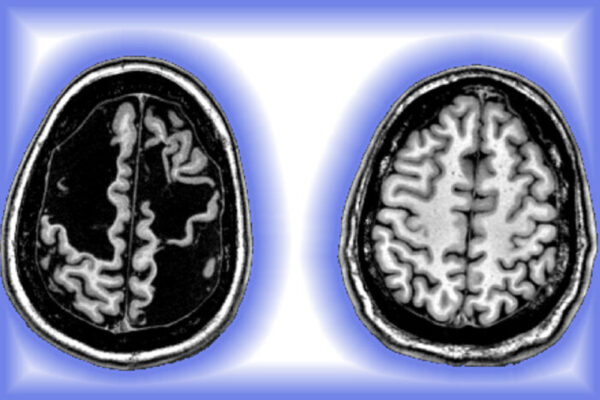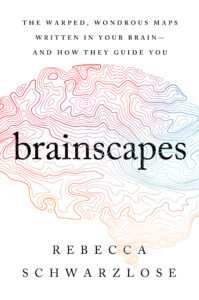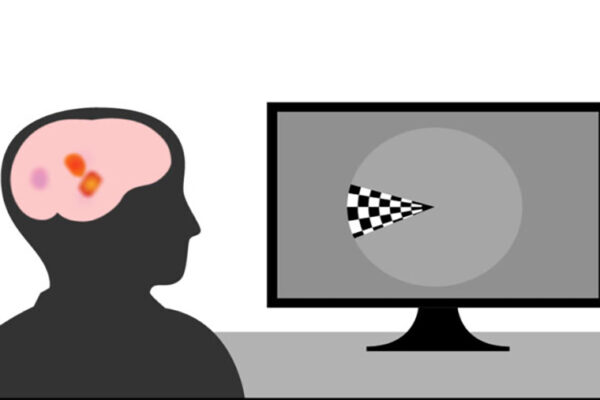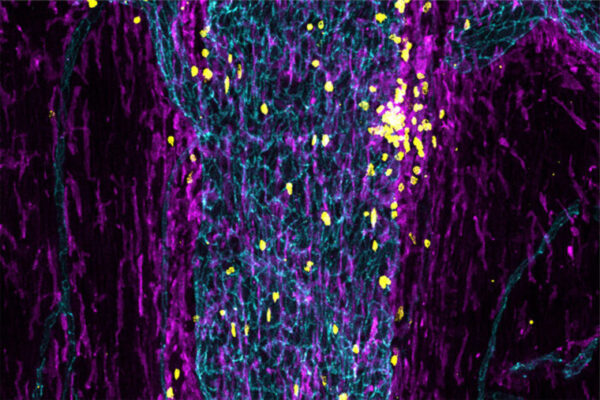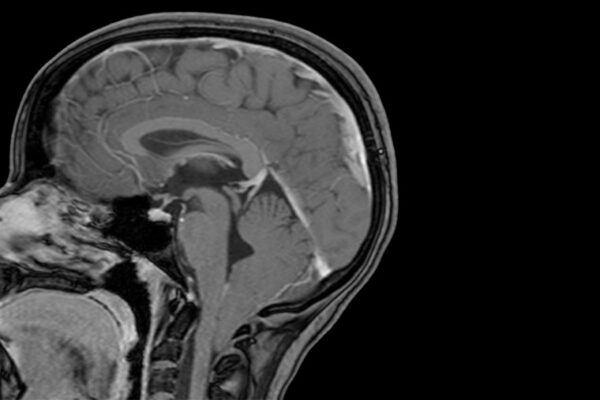Studies reveal skull as unexpected source of brain immunity
Researchers at Washington University School of Medicine have discovered that the immune cells stationed in the protective tissue known as the meninges come primarily from the skull. The finding opens up the possibility of developing therapies to target such cells as a way to prevent or treat brain conditions.
Stroke-recovery device using brain-computer interface receives FDA market authorization
A first-of-its kind device that helps people disabled by stroke regain significant control over their arm and hand function by using their minds has received market authorization from the Food and Drug Administration. The system developed by Neurolutions Inc., a WashU startup, relied on innovative multidisciplinary research at the university.
Reagh named APS ‘Rising Star’
Zachariah Reagh, assistant professor of psychological and brain sciences in Arts & Sciences, has been named a “Rising Star” by the Association for Psychological Sciences.
Changing how we see the brain
By studying our brain’s connectome, behavioral neuroscientist Damien Fair is drawing a new map of autism.
Brain rewires itself after injury ‘on the edge of what’s compatible with life’
Nico Dosenbach, MD, PhD, at the School of Medicine, conducted research over six years on a patient who suffered a stroke as a newborn. The case study show “the brain’s remarkable resiliency to rewire itself.”
Brainscapes
The Warped, Wondrous Maps Written in Your Brain—And How They Guide You
A path-breaking journey into the brain, showing how perception, thought, and action are products of “maps” etched into your gray matter—and how technology can use them to read your mind. Your brain is a collection of maps. That is no metaphor: scrawled across your brain’s surfaces are actual maps of the sights, sounds, and actions […]
Brain signals decoded to determine what a person sees
Researchers at Washington University School of Medicine have used light to decode brain signals and identify what image a person sees. It could be a step toward helping people who are unable to express themselves because of brain injury or disease communicate.
How does the immune system keep tabs on the brain?
Researchers at Washington University School of Medicine have found that immune cells stationed in such sinuses monitor the brain and initiate an immune response if they detect a problem.
Common brain malformation traced to its genetic roots
Researchers at Washington University School of Medicine have shown that Chiari 1 malformation can be caused by variations in two genes linked to brain development and that children with large heads are at increased risk of developing the condition.
How will we remember this holiday season?
How will this year’s celebrations be remembered? The answer will be “differently than normal” for some individuals, but collective memory for the pandemic itself is likely to fade quickly for most people.
Older Stories
